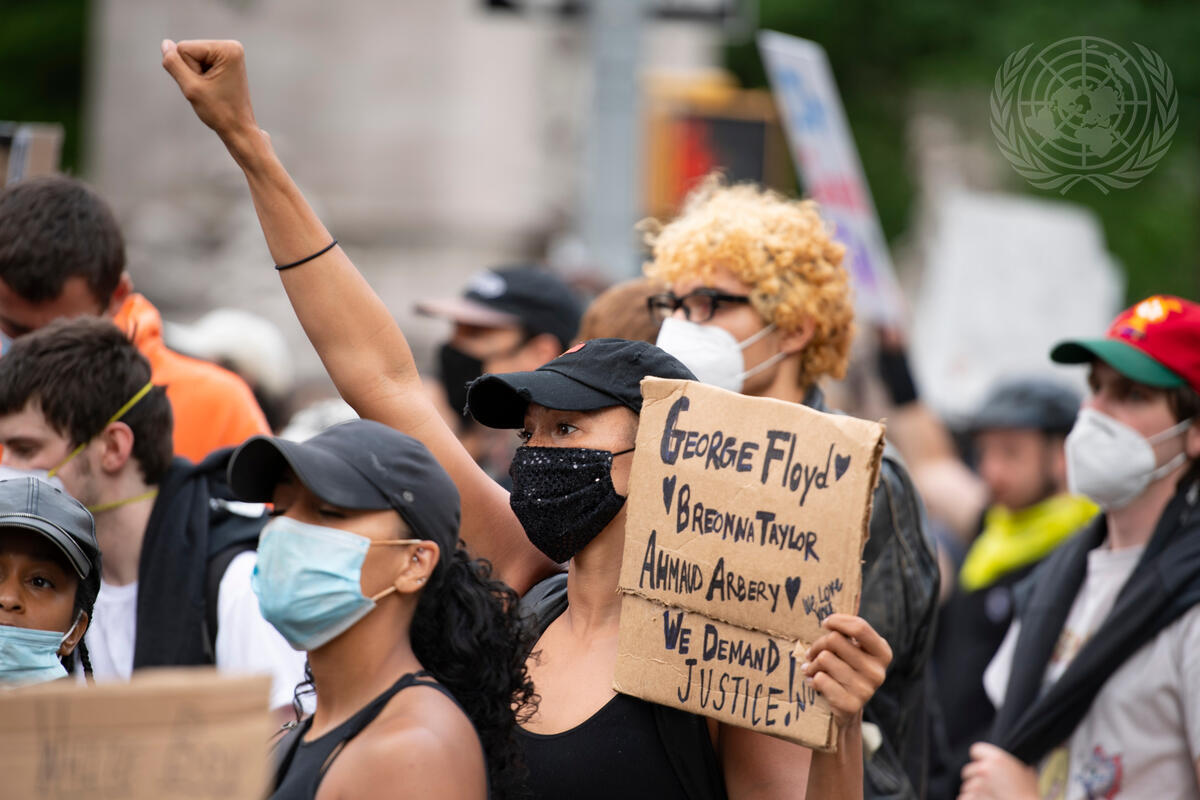On 3 October, States at the UN Human Rights Council, the acting High Commissioner for Human Rights, the chairperson of the Expert Mechanism to Advance Racial Justice and Equality in the context of Law Enforcement (EMLER), Collette Flanagan (United States) of Mothers Against Police Brutality (MAPB) whose son was killed by police in 2013; and Jurema Werneck (Brazil) director of Amnesty International in Brazil took part in a debate on systemic racism and the excessive use of force by law enforcement agencies against Africans and people of African descent.
The debate followed the near simultaneous publication of two reports looking at systemic racism and patterns in the use of excessive force by law enforcement against Africans and people of African descent, one by EMLER and the other by the Office of the UN High Commissioner for Human Rights (OHCHR). The reports confirmed the High Commissioner’s findings from her report to the Council in June 2021: States continue to deny or have failed to acknowledge the existence and impact of systemic racism, especially institutional racism.
The EMLER report, the first since its establishment in 2021, highlighted that the deaths of Africans and people of African descent at the hands of law enforcement continue to occur in many countries with little to no accountability. Experts pointed to the collection of data that is disaggregated by race or ethnic origin as an essential tool to monitor interactions between communities of Africans and people of African descent and law enforcement officials, noting the intense reluctance of several States – particularly in Europe – to adopt this practice.
OHCHR’s report focused on developments and initiatives undertaken by States and others to address manifestations of systemic racism against Africans and people of African descent. The report also gives updates on the seven emblematic cases referenced in OHCHR’s 2021 report, which illustrate patterns and practices that are barriers to structural and institutional change. The cases are: George Floyd (United States), Adama Traoré (France), Luana Barbosa dos Reis Santos (Brazil), Kevin Clarke (United Kingdom), Breonna Taylor (United States), Janner García Palomino (Colombia), and João Pedro Mattos Pinto (Brazil).
On the one hand, the report acknowledges that the initiatives from States are insufficient, but it then says that States show ‘a willingness to take concrete steps to address racial discrimination.’ The view of the UN Antiracism coalition (UNARC) is that States actively protect the interests of police institutions in order to maintain the status quo which is designed to oppress Africans and people of African descent.
‘Silence cannot be an option’, said Jurema Werneck in her closing remarks, before she urged member States to honour their international human rights commitments and step up their efforts towards addressing structural and systemic racism in law enforcement.
‘This is a global fight it will take more countries to summon the courage to join the fight against police brutality’, said Colette Flanagan, who also called for a new international convention on ‘justice, human rights and policing’, arguing this could bring into sharp focus ‘the ways in which internationally recognised human rights are subverted by police, particularly the rights of persons of African descent’.
Members of UNARC welcome the discussion at the Human Rights Council. Both reports and the contents of today’s debate highlight the urgent need to take immediate and vigorous action to address both the culture of impunity and laws and policies that enable law enforcement agencies to use excessive force on communities of Africans and people of African descent, and also to tackle the root causes of this violence and the lack of accountability that systematically follow it, principally the over-reliance on policing as well as the legacies and impact of systemic racism.
‘Every time law enforcement institutions are allowed to get away with using excessive force against Africans and people of African descent is a reminder of the systemic and extreme barriers with which many governments continue to burden these groups,’ said Lamar Bailey of the International Service for Human Rights (ISHR). ‘Governments must work to bring these barriers down and tackle the historic injustices that lie at their core. Council members must lead by example: they must immediately adopt the expert recommendations to transform their law enforcement practices and ensure all their citizens are treated and cared for equally.’
The Coalition urges all states to take the necessary steps to swiftly review and meaningfully reform their policies to make future incidents such as those discussed in the reports above impossible. This includes but is not limited to the systematic use of data that is disaggregated by race when seeking to understand and closely monitor the outcomes of interactions between law enforcement and communities, including Africans and people of African descent. While abusive policing will not be cured if the countries had more comprehensive data collection, such data would provide greater transparency to the public and accountability for law enforcement agencies.
We understand that, in many countries, there is a politically motivated reticence to use such tools. We believe this is the case because various States have an incentive to protect law enforcement institutions; because they benefit from the subjugation of Africans and people of African descent; and because they do not wish to see their practices highlighted on either a national or international stage, should their accurate numbers be revealed.
We call on the Human Rights Council and all States that are genuinely committed to the protection of human rights to support and encourage all efforts to fight entrenched and systemic racism that encourages violence against Africans and people of African descent and which protects perpetrators.




